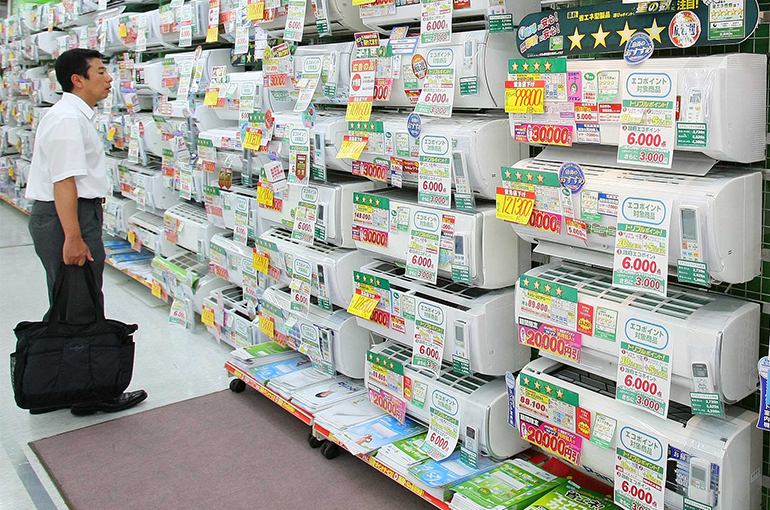 Japan’s Reliance on Chinese Imports Nearly Doubles in Three Years
Japan’s Reliance on Chinese Imports Nearly Doubles in Three Years(Yicai) July 17 -- Japan’s dependency on China for imported items, including laptops, air conditioners, organic chemicals, and rare-earth metals, almost doubled in the three years through 2022.
Japan was highly dependent on China for nearly 40 percent of the goods brought into the country in 2022, according to a white paper on the origin of 4,300 items recently published by the Ministry of Economy, Trade and Industry. According to a Japanese government report in 2022, the equivalent figure was about 23 percent in 2019.
China is Japan’s biggest trading partner, second-largest export destination, and top source of imports. Trade between the two countries stood at USD318 billion last year, with USD160.5 billion of goods heading to Japan and USD157.5 billion in the other direction, per Chinese customs data.
Chinese data also show that the balance of trade in goods between them reflects their complementary industrial structures to a large extent. China’s trade with Japan in textiles, foods, and household appliances is generally in surplus, while that of automobiles, chemicals, and metal raw materials is in deficit.
Many Japanese consumers use Chinese electronics, including phones by Huawei Technologies and Xiaomi and laptops by Lenovo, a Chinese person who has lived in Japan for many years told Yicai.
“Not only have a wide range of physical products gradually entered the Japanese market over the years, but also Chinese services such as Alipay, shared bicycles, food delivery, and more distinctive cultural and creative products,” the person noted.
The Japanese Chamber of Commerce and Industry in China released a white paper on China's economy and Japanese businesses on July 10, showcasing the integration of the two markets in recent years. According to the chamber’s survey of 8,312 Japanese firms in China, just over half regarded the market as the most important or one of the three most important.
Also this month, the Japan External Trade Organization released its findings on Japanese companies operating overseas. About 28 percent indicated that they planned “expansion” in the next one to two years, while 62 percent preferred to "maintain the status quo.”
It is an undeniable fact that Japan's dependence on China’s industry is increasing, Junichi Sugawara, a senior researcher at Mizuho Research Institute, told Yicai.
While diversifying the supply chain, Japanese firms must realize that in the future, they should regard China as an export processing base and, more importantly, as a large market that consumes their products, he added.
Editor: Martin Kadiev